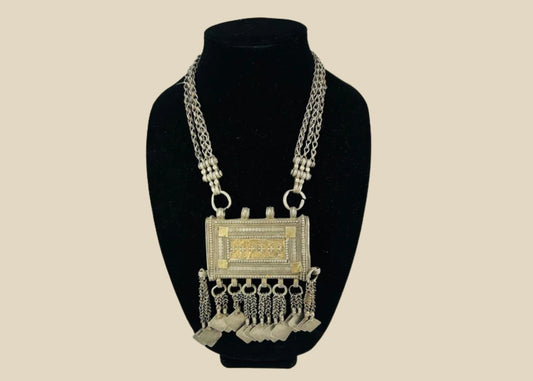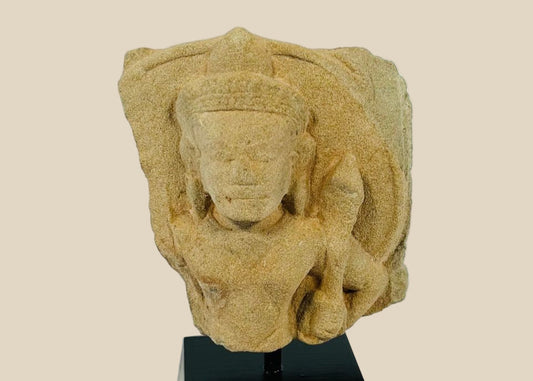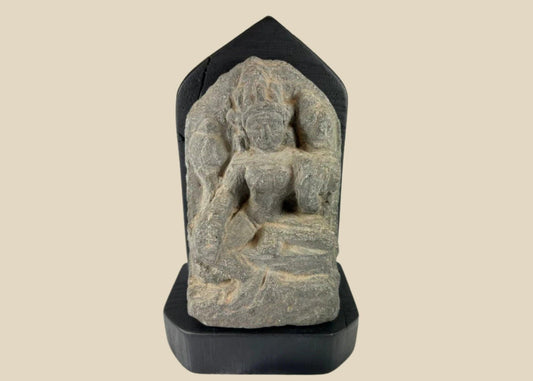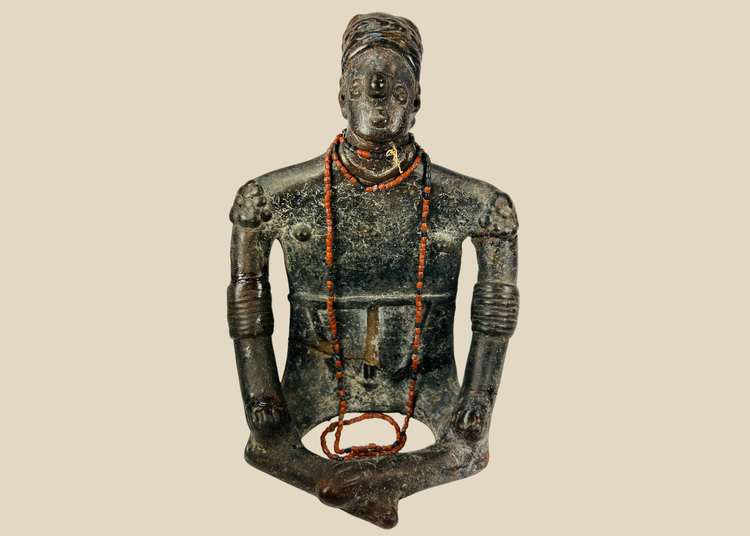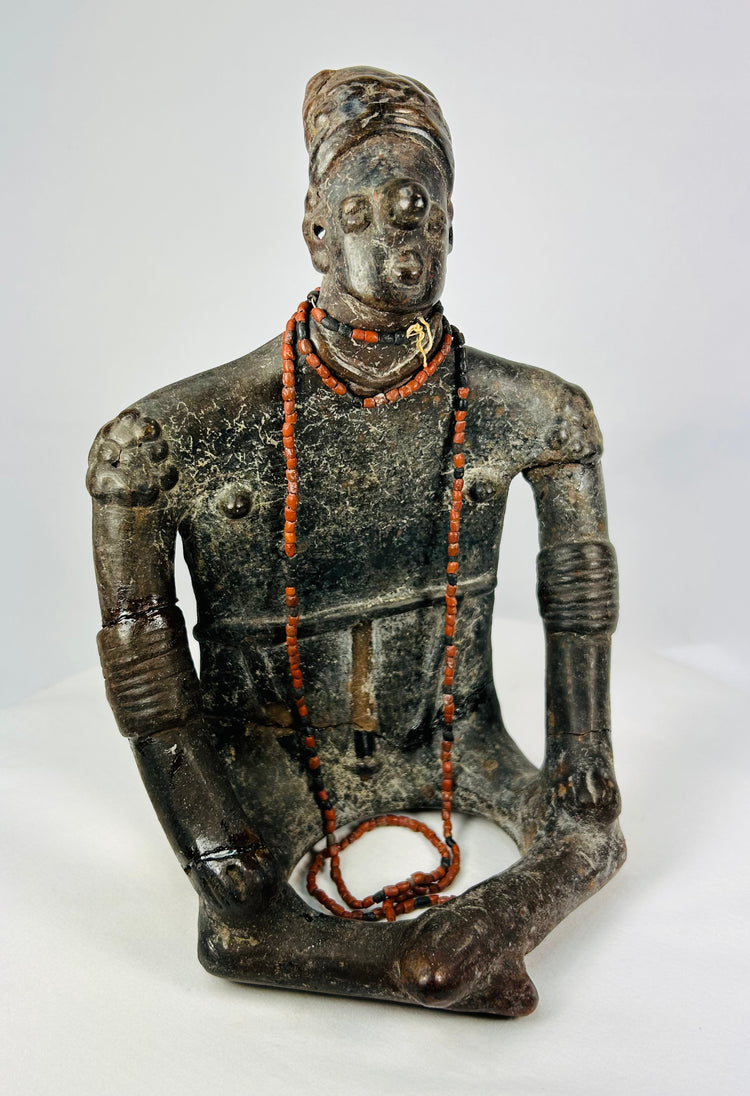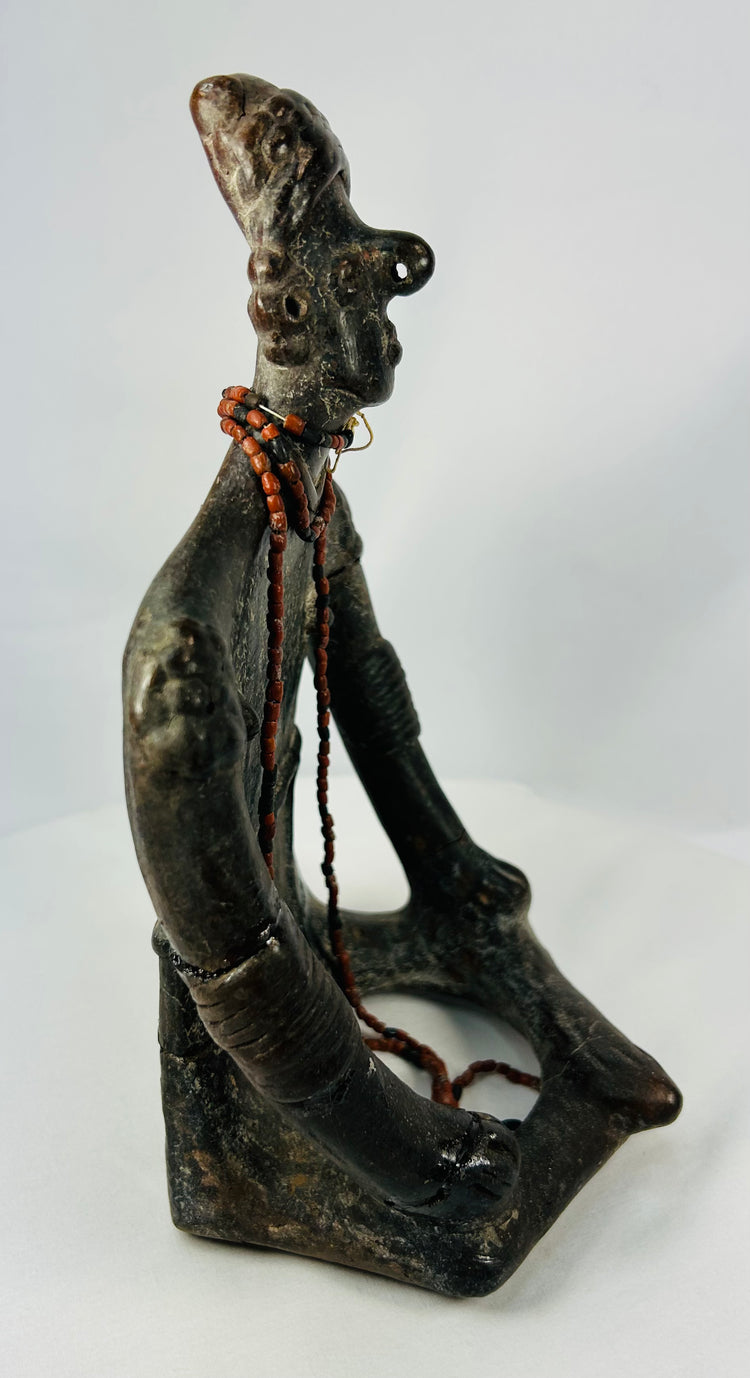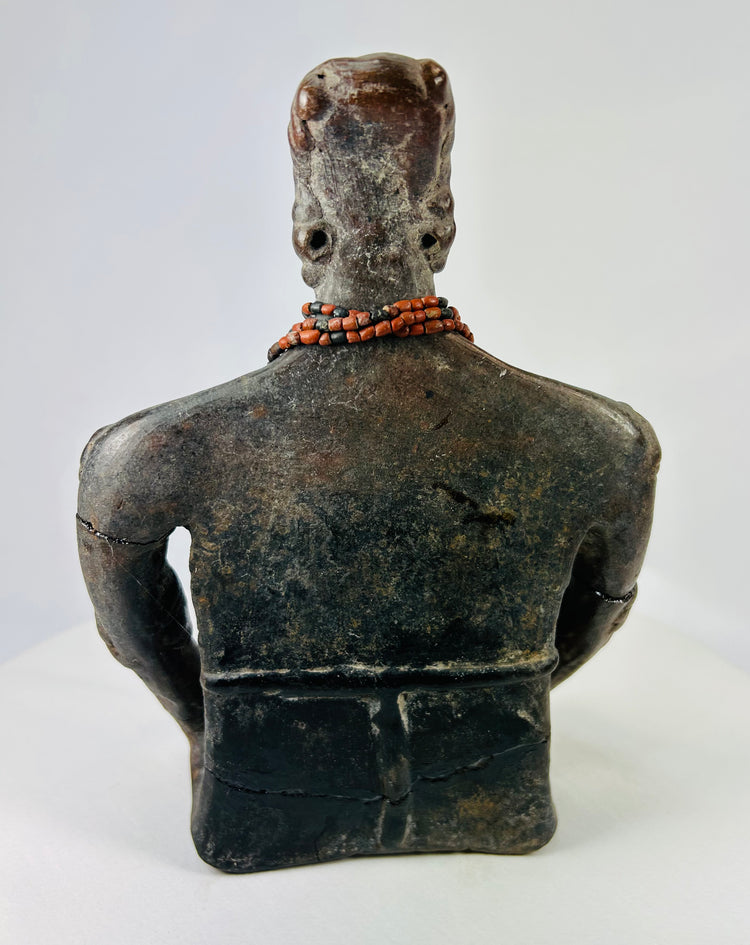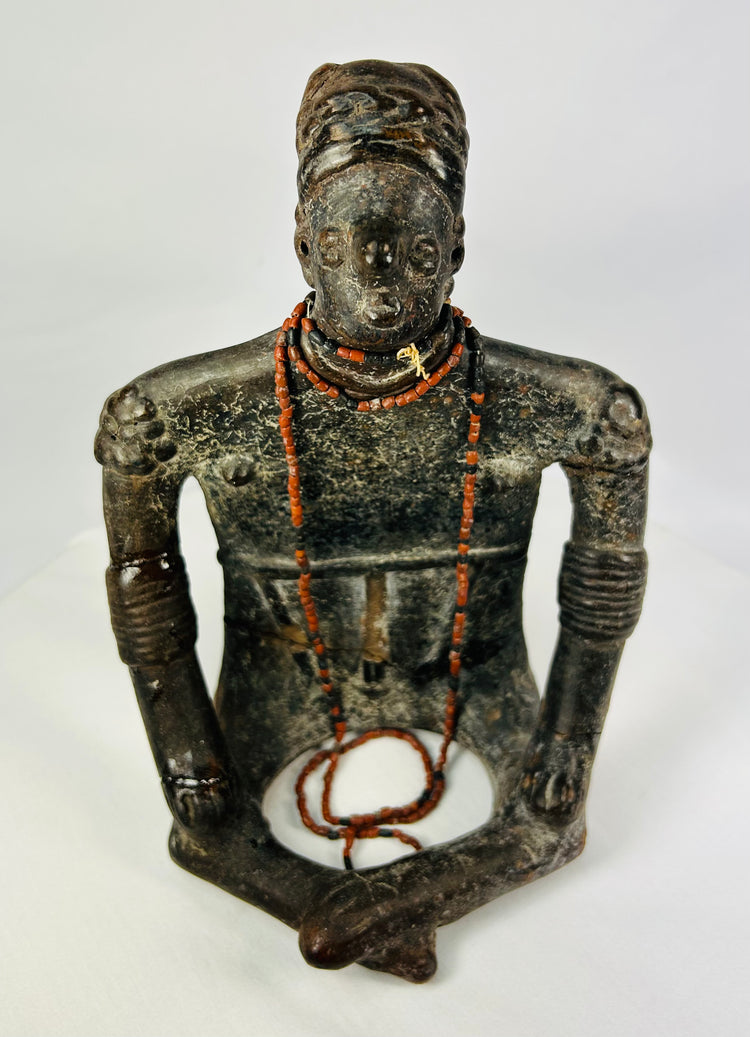Pre-Columbian Seated Shaman Figure with Red Beads | Nayarit Culture, West Mexico | Circa 300 BCE–500 CE
Description
More
Less
Historical Context & Origin
Region: Western Mexico (likely Nayarit or Jalisco culture)
Material: Hand-modeled terracotta with mineral surface patination
Period: Circa 300 BCE – 500 CE
Description
This exceptional Pre-Columbian terracotta figure depicts a seated shaman or ancestral figure from ancient West Mexico. Modeled by hand with remarkable sensitivity, the figure sits cross-legged in a meditative posture, hands resting on the knees—a pose evoking spiritual focus and ritual contemplation. The head bears an elaborate headdress and pierced ears, indicating high ritual or social status, while mineral deposits and pigment traces enhance its ancient character.
Around the neck hang two strands of small red beads, likely carved from shell or stone, representing vitality and spiritual protection. The stylized proportions, expressive face, and calm dignity align closely with Nayarit and Jalisco shaft-tomb traditions, where such figures symbolized ancestral guardianship and transformation.
Features
- Seated meditative posture characteristic of West Mexican shamanic effigies
- Hand-modeled terracotta with natural mineral patina
- Two original strands of ancient red beads (shell or stone)
- Elaborate headdress and pierced ears for adornment
- Professionally stabilized with restorations to midsection and arms
Cultural Significance
Effigy figures like this one were interred within shaft tombs as companions for the deceased, embodying ancestors or shamans who mediated between the living and spirit realms. Their tranquil poses symbolize rebirth and continuity, while the red beads likely conveyed sacred energy, fertility, and ritual protection. This piece captures the spiritual artistry and worldview of early West Mexican civilizations.
Condition
Excellent presentation with professional restorations to the midsection and both arms, where ancient breaks were rejoined. Surface shows mineral encrustation, light wear, and stable ancient patina.
Dimensions (Approximate)
Height: 9 in
Width: 6.5 in
Depth: 4.5 in
Age
Circa 300 BCE – 500 CE
Learn More & Explore
Discover more of our curated Pre-Columbian collection: Relic & Rarity – Pre-Columbian search results
Read further about the traditions behind this piece: “The Huichol of Jalisco and Nayarit” – Mexconnect
Description
Historical Context & Origin
Region: Western Mexico (likely Nayarit or Jalisco culture)
Material: Hand-modeled terracotta with mineral surface patination
Period: Circa 300 BCE – 500 CE
Description
This exceptional Pre-Columbian terracotta figure depicts a seated shaman or ancestral figure from ancient West Mexico. Modeled by hand with remarkable sensitivity, the figure sits cross-legged in a meditative posture, hands resting on the knees—a pose evoking spiritual focus and ritual contemplation. The head bears an elaborate headdress and pierced ears, indicating high ritual or social status, while mineral deposits and pigment traces enhance its ancient character.
Around the neck hang two strands of small red beads, likely carved from shell or stone, representing vitality and spiritual protection. The stylized proportions, expressive face, and calm dignity align closely with Nayarit and Jalisco shaft-tomb traditions, where such figures symbolized ancestral guardianship and transformation.
Features
- Seated meditative posture characteristic of West Mexican shamanic effigies
- Hand-modeled terracotta with natural mineral patina
- Two original strands of ancient red beads (shell or stone)
- Elaborate headdress and pierced ears for adornment
- Professionally stabilized with restorations to midsection and arms
Cultural Significance
Effigy figures like this one were interred within shaft tombs as companions for the deceased, embodying ancestors or shamans who mediated between the living and spirit realms. Their tranquil poses symbolize rebirth and continuity, while the red beads likely conveyed sacred energy, fertility, and ritual protection. This piece captures the spiritual artistry and worldview of early West Mexican civilizations.
Condition
Excellent presentation with professional restorations to the midsection and both arms, where ancient breaks were rejoined. Surface shows mineral encrustation, light wear, and stable ancient patina.
Dimensions (Approximate)
Height: 9 in
Width: 6.5 in
Depth: 4.5 in
Age
Circa 300 BCE – 500 CE
Learn More & Explore
Discover more of our curated Pre-Columbian collection: Relic & Rarity – Pre-Columbian search results
Read further about the traditions behind this piece: “The Huichol of Jalisco and Nayarit” – Mexconnect
You May Also Like

